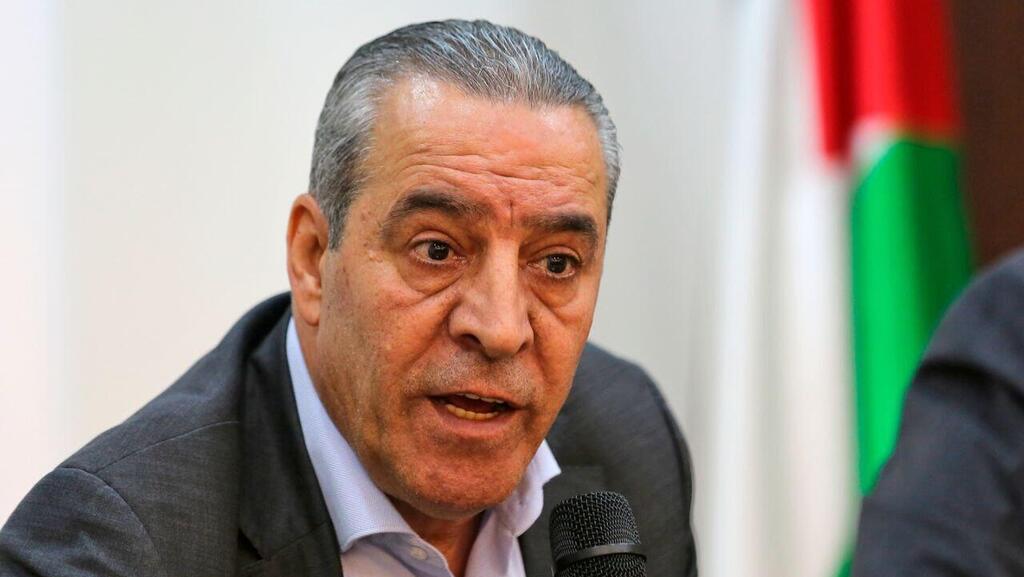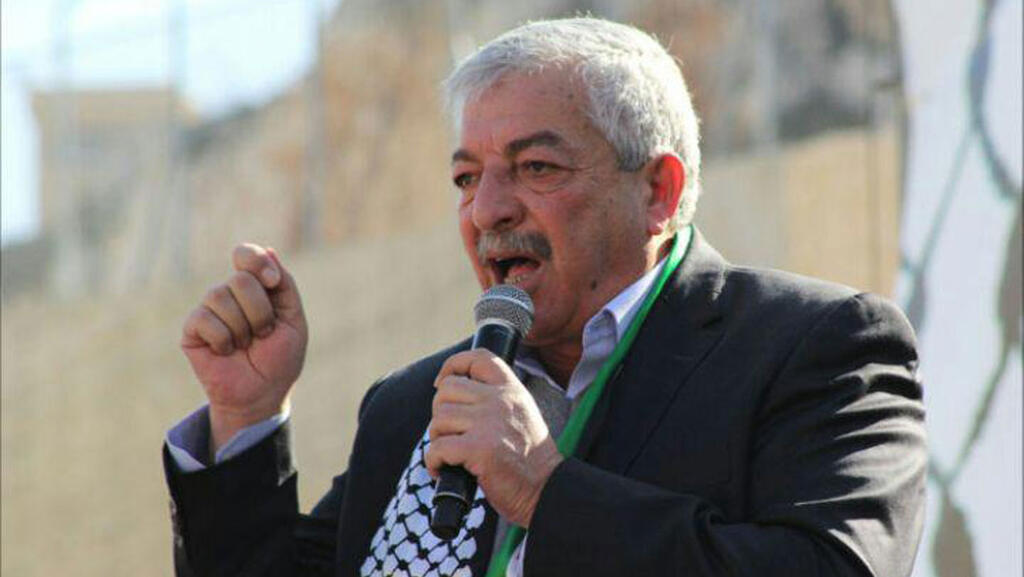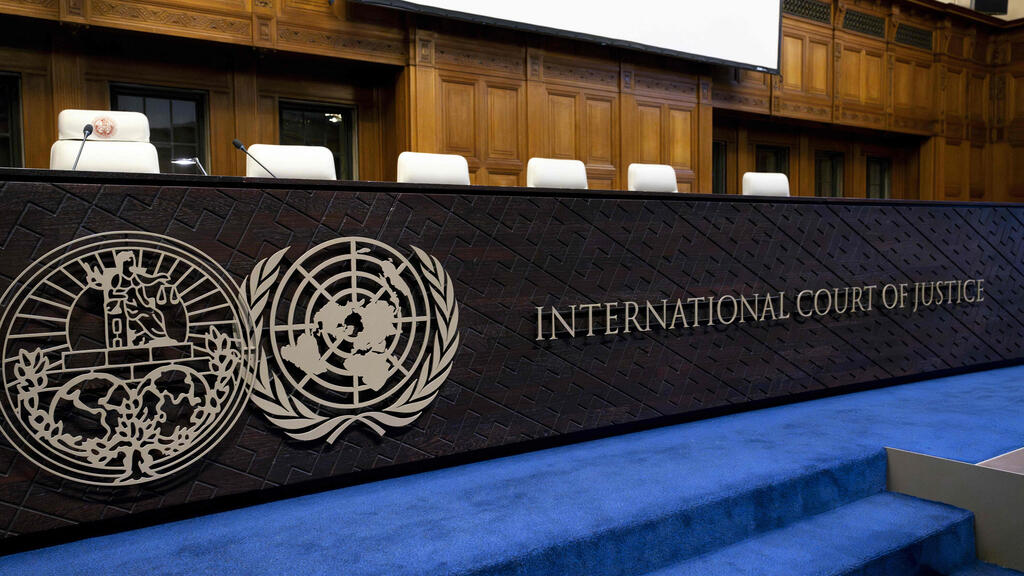Getting your Trinity Audio player ready...
Palestinian Authority officials condemned the legislation of the bill to ban UNRWA activities in the country on Monday.
“The Israeli decision regarding UNRWA’s work requires an Arab and international stance dedicated to protecting and supporting the agency’s role,” Palestine Liberation Organization (PLO) Executive Committee Secretary-General Hussein al-Sheikh said in a posted on X.
“The UN Security Council must compel Israel to implement international decisions. Silence on the massacres committed against Palestinians and on what UNRWA has been exposed to is a disgrace for those who agreed to restrict their position to statements, condemnations and denunciations only,” he wrote.
The Palestinian Authority (PA) has been in severe economic straits since the beginning of the Gaza war, teetering on the brink of collapse after Israel was withholding clearing funds which make up 65% of its annual budget.
Inside underground Hamas tunnel route passing under UNRWA-funded school and its demolition
(Video: IDF Spokesperson's Unit)
Palestinian officials noted that without an immediate solution for the “void that UNRWA will leave behind, specifically in the education system,” the PA would struggle to meet the needs of students and teachers.
“Israel is tying our hands and feet,” a senior PA official said. “We have no way to address all the issues UNRWA handled and supported without UN funding and aid unless Israel intends to fill that void through financing.”
Fatah Deputy Chairman Mahmoud al-Aloul stressed the international community’s need to take “urgent action” to force Israel to repeal the law and warned of its “negative consequences.”
“The law reflects Israel’s systematic intent to end UNRWA’s role and replace it with other agencies, in a move aimed at eliminating the Palestinian refugee issue and revoking their right to return,” he said.
“Refugees’ right to return is guaranteed by international law and can’t be circumvented by Israeli methods.” Al-Aloul accused the Israeli law of “blatantly violating the UN Charter and contradicting international resolutions — foremost among them Resolution 302 which mandates the establishment of UNRWA, as well as the recent Security Council resolution calling for the protection of humanitarian institutions and their staff.”
UNRWA was established by a UN General Assembly resolution in 1949 and is authorized to provide aid and protection to Palestinian refugees in its five operational areas: Jordan, Syria, Lebanon, the West Bank and the Gaza Strip.
“We provide assistance, protection and support for over 5.9 million Palestinian refugees,” UNRWA wrote on its main Arabic website alongside a statement from the agency’s Commissioner-General, Philippe Lazzarini, calling to “stop Israel’s violent campaign against us.”
The laws halting UNRWA’s operations in Israel were approved partly due to the involvement of some agency members in the October 7 massacre. “There is no question that individuals accused of criminal acts, including the deplorable assault on Israel, must be investigated," Lazzarini said. "This is exactly what the United Nations is doing. Those individuals must be held accountable through criminal prosecution and, if found guilty, punished.”
He said the Office of Internal Oversight Services, the top investigative body in the U.N. system, is overseeing this inquiry. "It is looking into allegations against 19 out of 13,000 UNRWA staff members in Gaza. To date, one case was closed because there was no evidence. Four cases were suspended because the information was insufficient to proceed. Another 14 cases remain under investigation. But we must distinguish the behavior of individuals from the agency’s mandate to serve Palestinian refugees. It is unjust and dishonest to attack UNRWA’s mission on the basis of these allegations.”
Several governments worldwide, including France, were quick to condemn the legislation. “Paris deeply regrets the approval of laws aimed at banning UNRWA’s operations in Israel. The implementation of these laws would have severe consequences for the already catastrophic humanitarian situation in Gaza and throughout the Occupied Palestinian Territories, depriving hundreds of thousands of civilians of essential aid, including shelter, healthcare, education and food,” France’s Foreign Ministry said in a statement.
“For more than 70 years, UNRWA has been playing a vital, indispensable role in providing essential goods and services to Palestinian refugees in the West Bank, East Jerusalem and Gaza, but also in the countries that have taken them in – Lebanon, Jordan and Syria,” it added.
“France reaffirmed its support for UNRWA, pledging that it will “continue to ensure the implementation of the necessary reforms to guarantee its neutrality, specifically the recommendations contained in the Colonna Report.”
Repercussions at The Hague
The new legislation mandates Israel’s complete severance of ties with UNRWA. The immediate effect means that should UNRWA staff request visas, Israel’s Foreign Ministry won’t cooperate, indirectly impacting their immunity. Israeli officials estimate Palestinian officials will leverage this legislation against UNRWA in the genocide lawsuit South Africa filed against Israel at the Hague.
The legislation has triggered a serious crisis in Israel’s relations with the UN, though it’s important to note the UN consists of many bodies. Israel maintains reasonably good relations with UNICEF, the International Red Cross and the UN World Food Program. Bodies with which it has friction include UN Secretary-General António Guterres, who has one more year in office, UNRWA and UN Women.
Guterres will likely use the legislation as a lever against Israel. He and Lazzarini framed the legislation as a blow to the multilateral system and a dangerous precedent — but this is misleading, as there’s no other organization in the world similar to UNRWA that perpetuates refugee status indefinitely.
Get the Ynetnews app on your smartphone:










